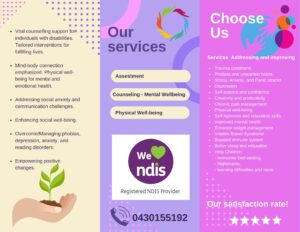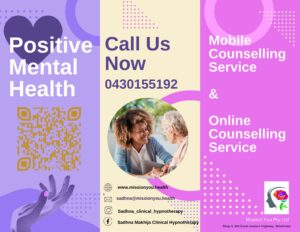What NLP Student Workshop can do for students?
Every child is born with unlimited mind power but fail to utilise it well as he/she doesn’t know how to utilise the power of subconscious mind. Mind mapping and NLP (Neuro Linguistic Programming) can help your children become a super-achiever in their studies/life. If you wish to help your children learn their syllabus ten times faster with long retention, get rid of their fears, phobia, anxiety, stress, depression and gain turbo-charged unstoppable confidence, NLP-Mind Mapping can do miracles for them. Learn Faster. Retain Longer.
- You will learn to regain your lost interest in any subject or studies.
- You will learn to overcome any negative state such as boredom, anxiety and frustration.
- You will learn to handle unwanted and distracting thoughts during your studies.
- You will learn to get rid of the habits and behaviors that are distracting you to achieve your goals.
- You will learn to get rid of any phobia or fear.
- You will learn to develop your self-confidence.
- You will learn to model the patterns of successful students to produce wonderful results.
- You will learn to stay in powerful states and produce the results that you desire and deserve.
Benefits of Student workshop
his student-transforming workshop will train students to use their potential at the highest level. The contents/sessions included in the workshop are:
- You will learn how to memorise and retain your syllabus in one or two readings.
- Your brain has all the potential to create interest in studies if programmed well. In this session you will learn to develop this interest.
- You will get a session to develop inner patterns of motivation on the mind screen and enjoy unstoppable motivation.
- You will get rid of your unwanted fears and phobias.
- You will learn how to multiply your stress handling capacity and enjoy better study.
- Learn to develop new patterns of confidence in your mind and enjoy your exam, interview and public speaking.
- Learn to handle your personal issues and be happy and in control of your life.
- Learn to replace your unwanted behaviours and habits with new and positive ones.
Why Parents Need NLP Training Programs?
Only a parent can feel the weighing responsibility to guide and educate their children through life. You can learn to apply the communication techniques of Neuro Linguistic Programming (NLP) to face the daunting tasks of parenthood.
By using common phrases like “You can’t…” or “Because I said so…” parents are consciously or unconsciously creating perception filters in children. However, these filters often work against parents, producing undesirable results and many times limiting the ability of children for learning and personal growth.
By learning NLP, you will learn how every form of communication, whether verbal or non-verbal, affects the intended recipient and so the importance of communicating accurately on every level possible cannot be understated.
Learning NLP eases the difficulties which are so frequently felt in parent-child relationships, especially as they grow older and develop their own individual personality. With the tools of NLP, parents will have the ability to help their children become successful individuals in life.
Parenting need not be a daunting responsibility. You can make parenting fun for yourself and your children. Food times, study times need not be battle times. You can make them game time for you and your children.
Learn NLP now and get a new insight into what goes in your teenager’s mind so that you can bond with them better.
How NLP Benefit Teachers?
NLP has been widely used in various sectors of business and personal development.
I often get asked about how NLP benefits teachers.
This course was developed to provide teachers with a range of relevant NLP skills to work with the people they are responsible for, regardless of the student’s age. These techniques can have a powerful effect on both the teachers and the people in their working environment. The teacher will be able to use these skills both in their working and personal lives and will see the benefits in both these environments.
As NLP is a highly effective set of techniques to assist people to achieve their best and their goals, it is clear to see how the teachers, schools and students benefit.
The training is delivered as a two-day introduction (called Think beyond and create your own future) to NLP for teachers’ course, focusing on specific techniques employed when working in the education sector or a seven-day complete NLP certification course. You will receive an “Introduction to NLP for teachers” training manual to illustrate the techniques during the course so that you can revisit and refresh yourself on what you have learnt while you get comfortable with your newly acquired skills.
What Are the Benefits of NLP For Teachers?
The training is very hands on, and you will practice the techniques with fellow teachers to ensure you understand how the techniques work and cement your understanding through practice.
- Representational Systems.
How individual people represent their worlds through language and how to use that language to communicate effectively. - Eye Accessing Cues.
What people are doing with their eyes and what it tells us? How to use that information to make us more effective communicators. - Anchoring.
State control of self and others. Utilising anchors in teaching. Helping students to be in positive resourceful states when presenting in front of others. Assist teachers to be in control of their own states and help the pupils to be in positive learning states. - Rapport.
Sensory Acuity. Noticing subtle shift changes in others, noticing understanding or the lack of understanding and much more. How to build and maintain rapport even when saying NO. - Peripheral vision.
Learning is state dependent. Helps open the unconscious mind for learning and can also be used to control un-resourceful states. - Well-Formed Outcomes.
How to set SMART, achievable goals, both for the teacher and the class. - Introduction to Meta-Model patterns.
Understand the real meaning of what others are saying, not what is assumed. - NLP Presuppositions.
How to use language to hear what others are saying and how to suggest success and understand so that it is easy for the student to accept and actualise. - Introduction to Milton Model
How to use language patterns to achieve your planned outcome. You will also learn the ability to “chunk up and chunk down.” Easily shifting from big picture to more detail and vice versa. - Perceptual Positions.
Understand other people’s point of view and their ‘positions’ in relationship to others. Helps to avoid getting stuck in any one position. - Metaphors.
How to create and use stories. - Re-Framing.
How to re-frame what somebody says to put a positive spin on it and encourage moving forward.
NLP in Education
We have many students from all walks of life who come and do our NLP courses and life coaching courses. Many students want to know how to use NLP in education. NLP takes learners who you might think of as disenfranchised learners and gives them back the ability of being able to learn.
When we look from a point of view of NLP in education, we believe that there are no disabled learners. We believe that every single learner has a capability and the ability to learn. They are just simply using an inappropriate strategy or inappropriate representational system. In this case, how can we utilise NLP in education?
How to use NLP in education
How to use NLP in education The NLP communication model is useful to consider when teaching. Whether involving a child, student or learner, internal representation will make a major difference in the process of them learning.
Start from the point of view that everything you have ever seen, heard, felt, tasted, smelled or even said to yourself. All of this is stored in your nervous system, even though you may have consciously forgotten about it. That is really important because when we think of the notion that a child who can’t remember the right answer for a test, then the issue is not really that they don’t have the information available. It simply means that they are not able to access that information.
One way to help the person is to teach them to go into the learning state. We teach the learning state during our NLP training and life coaching courses. The learning state allows us to begin to relax and in turn also to remember things really well.
Where else can you use NLP in education?
That depends on how much time you have to work with a person. I think teachers and educators are very well placed to do a lot of great work with students as they spend so much time with them. The fact is that they are authority figures and as such, the teachers can easily teach students new skills alongside their normal curriculum. However, that does not mean that parents can abdicate their responsibilities. Parents should take an active role in their children’s education.
A teacher should determine whether the student is normally organised or reversed organised in regard to the eye patterns. This simply means how the child accesses information in their head. This is very easily done and can be very useful to the teacher in regard to educating the student. You may also find that a child has not chosen a dominant hemisphere. Helping the child to do so could help the child greatly.
If the child has not yet chosen a dominant hemisphere you may need to do things that go bilaterally across the mid line of the body, that is to say going back and forth. You could have them touch their left shoulder with their right hand and their right shoulder with their left hand going back and forth several times. The learning state may also synchronize both hemispheres of the brain. Giving them something to do that synchronizes both hemispheres of the brain will allow them to be able to use their perfect visual memory.
The learning state and spelling strategy are really easy for you to teach to students. It takes a short period of time and usually results in an immense increase in their grades. I use the learning state every day in work, presentations, when I study and even driving. The person has a much greater awareness as the peripheral vision is used, instead of just the usual foveal vision. Especially as children spend more time in front of the TV, computers and other activities that limit their peripheral vision.
Foveal vision is linked to the arousal of the sympathetic nervous system. This is the ‘involuntary’ or autonomic nervous system associated with activity, adrenaline and stress. Peripheral vision is linked to parasympathetic nervous system, the part of the nervous system associated with relaxation, calmness and healing. In fact, to the extent that you are truly in the peripheral vision state, you can block anxiety or stress. The two states are physiologically incompatible and can’t be held in the same consciousness when in peripheral vision.

